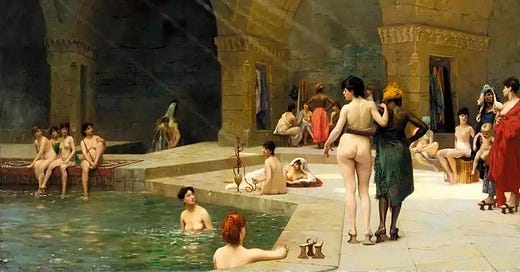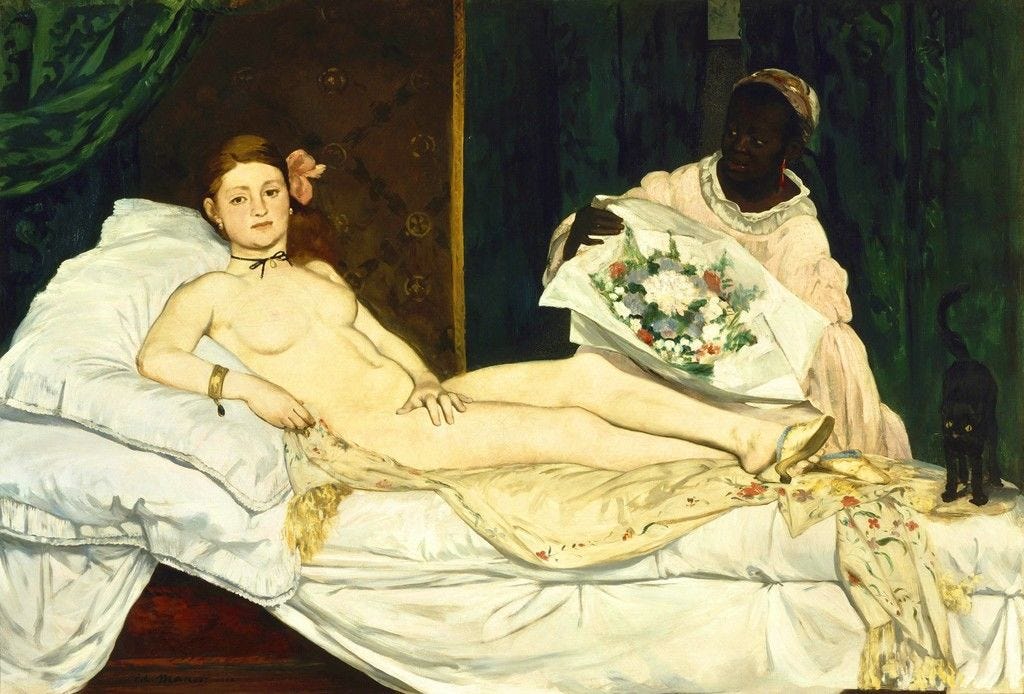We Other Millennials
"Are You, Like, a Conservative?" (The History of Good Sexuality, Vol 1: The Will to Ignore Race)
For a long time, the story goes, we supported a regime of sexual liberation, and we continue to be dominated by it even today. Thus the image of the radical queer is emblazoned on our unrestrained, loud, and hypocritical sexuality.
The most interesting thing about people, I sometimes think, is that we are all massive hypocrites.
If everything that’s old again is new again, aren’t we a few years overdue to end the second Victorian era? Aren’t we supposed to be living in the second roaring twenties? But there is a problem on the internet about sexuality and we aren’t allowed to be flappers and drink champagne out of coupe glasses until we solve it, us hypocrites.
I think Harron Walker got it right when she tweeted that “sexual conservatism has more to do with alienation than something as simplistic (and made up as generational age).” Aren’t we all hypocrites as disaffected teens? God knows I was, a scrawny untransitioned faggot with purple hair who spectacularly failed at dating girls because it didn’t feel gay in the right way and so reluctantly accepted that if I dated boys I would at least be allowed to be kind of…you know.
This was before the days of bisexual erasure, of course.
What if we are all hypocrites, regardless of age, or generation? What if desire, sex, and intimacy are the places where hypocrisy runs wild and hot, and where surprise is like gasoline poured on a raging fire? What if what we profess to believe is contradicted by what we fantasize about, or feel wet for? Then perhaps we cannot idealize being queer, or trans, into a politic.
It begs the question, though: what if you don’t like surprises? What if a whole bloc of people on the internet don’t like surprises?
I don’t think there’s a generational war over sexuality between queer millennials and conservative zoomers. Like most generational arguments, it’s too sweeping of a generalization to hold up under scrutiny. I may not have had twitter as a teenager, but I did have chat rooms and MSN Messenger and I can assure you, I would not dare repeat in public the content of what went on in the internet 1.0. Lucky me that whatever I typed into a computer in 1998 isn’t retrievable anymore.
But there are a lot of hot takes and even hotter replies consuming what feels like a hysterical proportion of our attention. Is kink “bad”? Should sex be kept out of Pride? Are age-gaps problematic? Does porn normalize pedophilia? Is sexuality good…or bad?
If we are all hypocrites, then the answers don’t really matter. Whatever position we take, whatever take we defend, our desires will inevitably betray us. Kink’s badness is also why it feels so good to get hit until you bruise, proving yourself wrong. The risk of seeing the sex you don’t want to see at Pride is a little bit why you go every year. Without an age-gap you’d never know what to do with your lost shot at being cared for by someone more powerful than you, like you’ve always secretly wanted. And porn can show you what you want to remain fantasy—what you don’t want to ever transpire in the real world, but need to think about because of it.
Is sexuality good or bad? It doesn’t matter, my fellow hypocrite. The answer to our present problem lies elsewhere.
At the beginning of the twenty-first century a certain imprecision was still common, it would seem. Sexual practices were still chained to repressive hetero- and cis-normative ideals; precise words were yet absent for the spectrums and constellations of queer and trans life.
But the sun rose on this second Victorian era, followed by the visibility of new genders and sexualities unencumbered by erasure. Sexuality was now carefully protected and cared for through a newly reinforced language of consent, respect, and recognition. Henceforth, good representation would matter. The conjugal family took custody of its gay and trans children. The binary gave way to a nonbinary universe composed of infinite pulsing frequencies. And the legitimate couple folded to the broader webbing of the polycule.
What are we fighting over, we other millennials and our supposed youth antagonists? I hate to say it, but it might be neoliberal. And a lot of it is white bullshit.
One definition of neoliberalism as a style of organizing your relationship to the world would be that it separates an increasingly privatized social self from the machinations of political economy. One of its many gifts is the cursed “liberal on social issues, fiscally conservative” white gay man. (Also paging that white they/them at the helm of Genderfck Club, who is apparently also “interested in exploring foreclosures.”) But another is a confusion between individual conduct and organized, institutional power. What one person does or does not do to you is not equivalent to what a school, a psychiatrist, a judge, a police officers, or a prison warden does—or, more to the point, what an individual does to you when enabled by such an institution. And I think we might want to acknowledge that.
And then what?
Well,

I tweeted earlier today.
This is where the millennial/gen z battles over sexual morality are a bunch of smoke. A distraction. A neoliberal ruse for an unstated status quo that is the back upon which the game of internet politics is conducted.
Black and brown trans women are only desired as political signifiers, people in whose name the business of queer and trans politics is conducted. Black and brown trans women are always the preface, but never the content. Their own projects and politics are not really valued, or centered. Whenever they don’t fit the desires and mandates of those politics, they are instantly rejected, discarded, and forgotten. While white queers fight over kink and age on Twitter.com, Black trans feminist organizations continue to focus on housing, police, and prison, rather than some “smash the gender binary” and “normalize (or don’t) queerness!” broken record.
That they are invoked endlessly, but not of any material import, is nothing other than some real white bullshit.





Why does Katelyn Burns look like Jessica Yaniv but creepier?
Abigail Shrier has really gotten to you. Is it because she has exposed the snakes and slayed the naysayers with perfect logic and science?
Are you sad about your transition and wish you had read her books b4?
Are you sad she is simply providing a resource to girls and parents that simply says dont mutilate your body b4 thinking this through?
Is it because shes Jewish? Do you hate Jews?
Is it because shes a woman of authority, something you surely aspire to but will never be?
Is it because despite the best attempts of the TIM-trans identified Male smear campaign she is richer and more acclaimed than ever?